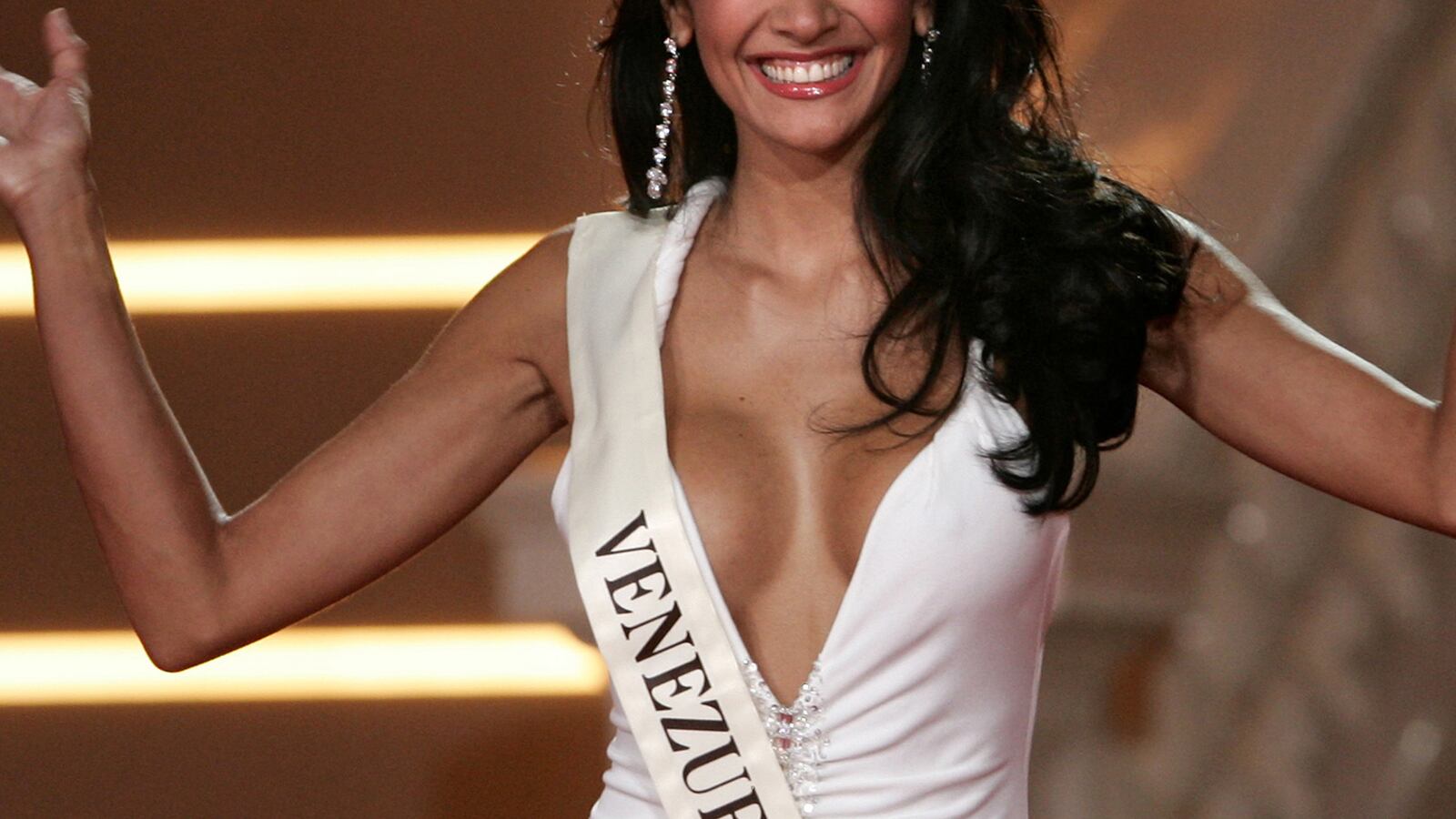Venezuela is known for both its socialist economic policies and its beauty queens. Now, the policies of Hugo Chavez and his successor, former bus driver turned Venezuelan President Nicolás Maduro, have begun to affect the nation’s women—famed for their beauty and curves—in their hearts. Or rather, what surrounds their hearts: their breasts.
Venezuela faces shortages in everything from toilet paper to bread, but one of the most overlooked items is breast implants. Though superficial on the surface, in Venezuela at least, breast implants and accompanying plastic surgeries are what you might call an important staple of many households.
Daniela Holmes, a twentysomething Caracas native, explains that breast implants have “almost become like a cultural thing. It is like a rite of passage.”
“It’s our version of a bat mitzvah,” she continued. “You’re a woman, you get fake boobs now.”
With a population of just of over 30 million, Venezuelans purchased 38,500 boob jobs last year, according to the International Study on Aesthetic/Cosmetic Procedures. This is a slightly higher rate than U.S. consumers buy new breasts (313,000 surgeries out of a population of 313 million). But consider that the American GDP is $53,142.89 per person and Venezuela’s is $14,414.75 and it becomes clear that what Americans consider a luxury item, Venezuelans consider a middle-class purchase if not a necessity.
They’re rightfully proud of their record 21 international beauty pageant titles, seven more than the next runner-up, the United States. Alexandra Hidalgo, a Venezuelan native, writes in National Identity, Normalization, and Equilibrium: The Rhetoric of Breast Implants in Venezuela that the Miss Universe competition is like America’s Super Bowl, an opportunity for Venezuela to show off on the world stage.
“International glory is something we seldom taste except in one area: the beauty of our women,” she writes. That’s why as a child she and her friends grew up singing the “Miss Venezuela” theme song during school recess. If little girls in Venezuela grow up watching the international beauty pageants enough to memorize the theme songs, the value of beauty is and will remain ingrained in Venezuelan culture. And large breasts play an out-sized role in the Venezuelan national psyche.
“The lack of breast implants will of course impact the future of Venezuela’s success in these contests,” said Edna Lerebours, owner of Agencia Eme model agency in the Dominican Republic.
Lerebours went on to explain that Venezuela’s beauty pageant success is “not only from the breast implants in Venezuela, but plastic surgery in general. Of course it will affect Venezuelan beauty pageant culture because many of the women use plastic surgery to look perfect.”
She said pageant contents are just the most visible product of the cosmetic industry now at risk. Regular women get implants “just as easily and quite often,” she said.
So alarmed is she at the shortage of implants, that she said it would affect the overall culture of beauty in Venezuela.
“A migration of Venezuelan women to Colombia”—also famed across Latin America for its curvy, beautiful women—“may be in the works,” she said.
Carmen Olivero, 22, of Caracas offers a different opinion. “I don't have anything against women who get plastic surgery to better their appearance, but I feel that it is sad how women in Venezuela believe that with breast implants they would be able to accomplish everything that they want, instead of getting a good education.”
Carmen goes on to say that “unfortunately there is a good percent who think like that, [but] we do still have women who are worried about other important things instead of having a plastic surgery. Maybe if they become less available, it would be worse because the girls who can’t afford it will be willing to do anything in order to get their breasts implants, increasing prostitution and other problems that come with it.”
Recent claims from plastic surgeons across Venezuela indicate it has become difficult to obtain safe breast (approved by the F.D.A.) implants due to Venezuela’s currency controls that have also led to a variety of shortages of basic goods. These currency controls over the past decade have restricted the conversion of the Venezuelan Bolivar into other foreign currencies in an effort to halt capital from leaving the Venezuelan government after Chavez seized and nationalized private businesses and land.
Economists say Venezuela's shortages stem from price controls meant to make basic goods available to the poorest parts of society and the government's controls on foreign currency.
"State-controlled prices—prices that are set below market-clearing price—always result in shortages,” said Steve Hanke, professor of economics at Johns Hopkins University. “The shortage problem will only get worse, as it did over the years in the Soviet Union."
Ben Hockman has seen these shortages firsthand. Hockman is a Colombia-based security risk consultant with one of the world’s leading security, political, and integrity risk firms.
“I made an eight-hour trip from Caracas to Falcón State about a year ago and stopped at about four different restaurants,” Hockman said. “And I couldn’t find a hamburger in any of the restaurants because there was no bread.”
Along with basics, Hockman explains from more recent trips there is a “shortage of anything having to do with plastics, like injection molds to create a manufactured product, and I would imagine medical devices and breast implants fit within that.”
Foreign companies fear doing business in Venezuela, and the lack of capital to purchase foreign goods mean imports are even more difficult today.
One possible solution to the breast shortage is the infamous Venezuelan border with Colombia. After years of Venezuelans smuggling cheap gas into Colombia for generous profits, Venezuela closes the whole border each night. He said he could imagine a scenario that works in the other direction for breast implants.
“You’ve got people trying to import illegal, or not officially recognized in Venezuela, breast-based products in Venezuela,” he said. “Maybe even a mass exodus of Venezuelan women looking to get breast implants done in Colombia.”
Within the past year, the Venezuelan government imported toilet paper to avoid chaos and resolve political pressures, leading Venezuelan Commerce Minister Alejandro Fleming to announce, “The revolution will bring the country the equivalent of 50 million rolls of toilet paper.” What will the Bolivarian revolution do to save the country’s record of pageant success?






